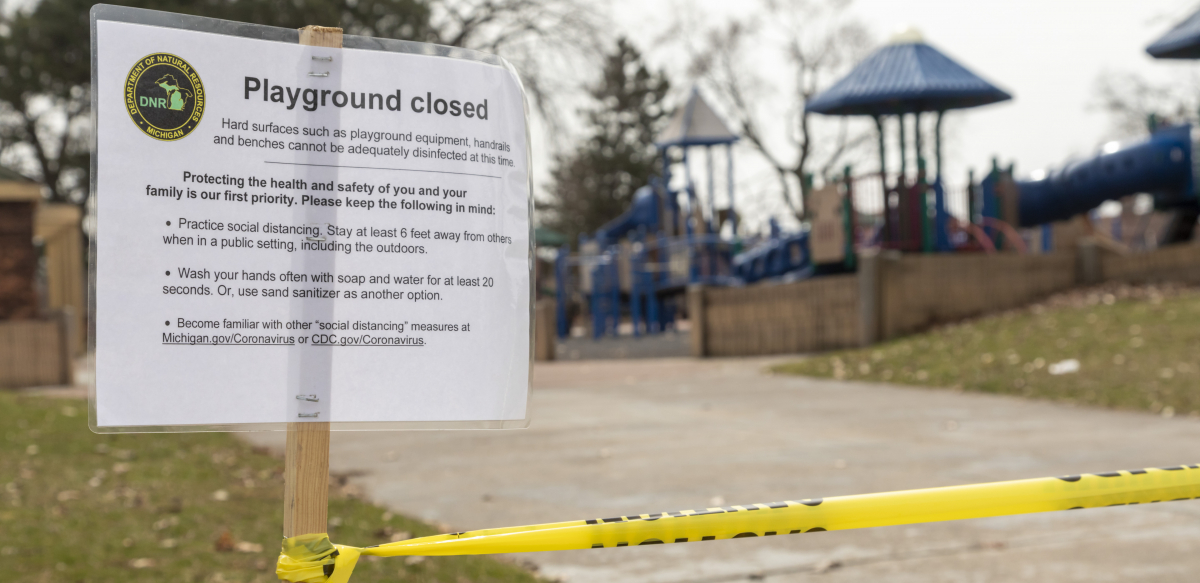Shut It All Down Now!

Unions are beginning to call for a national shutdown of nonessential workplaces. Photo: Jim West.
More unions are demanding that all non-essential workplaces be shut down, to slow the spread of the coronavirus.
On a Labor Notes webinar March 30, essential workers pleaded with everyone else to please stay home.
Of course, that requires compensation.
The Chicago Teachers Union “calls for an immediate and complete stay at home order and national shutdown for a number of weeks with economic compensation for all affected workers, including all workplaces with exceptions for essential public infrastructure, public safety, medicine, and food distribution.”
The United Electrical Workers (UE) point out that under the CARES Act, some non-essential workers will receive more unemployment pay than they would have gotten while working—an inconvenient fact that almost caused Republican senators to derail the bill. The UE urges union and non-union non-essential workers to demand their employers temporarily close.
Here are excerpts from the UE statement:
The People’s Health Demands that Workers Take Action
Too many companies are continuing to operate their facilities, either falsely claiming they are essential or just outright ignoring the obvious public health need to stop business as usual....
It is time for workers to demand that all but the truly essential workplaces close and that safety measures be greatly stepped up at those locations that need to stay open....
Fortunately, despite largely being written to once again bail out Wall Street, there are aspects of the Coronavirus Aid, Relief, and Economic Security (CARES) Act, which is now law, that will make it economically feasible for workers to demand that their non-essential workplaces be closed.
Thanks to the tremendous leadership of Senator Bernie Sanders, the new law contains the best unemployment benefits workers have ever seen in the U.S. With a $600 weekly boost to unemployment compensation for up to four months, most workers will receive as much or more pay if they are laid off than if they kept working.
The law also contains a provision whereby the government will essentially reimburse businesses of under 500 workers for the cost of paying their workers’ wages and benefits for up to eight weeks, even if they aren’t working....
We must practice aggressive public-health measures, including shutting down non-essential workplaces, for as long as necessary to slow the spread of the virus and to give our healthcare workers a fighting chance to care for those who become ill. These benefits ensure that can happen while allowing laid-off workers to continue to provide for their families.
This is a clarion call for all workers in non-essential workplaces, union and non-union, to aggressively demand that their employers shut down....
Workers need to fight like their lives depend on it—they do.





